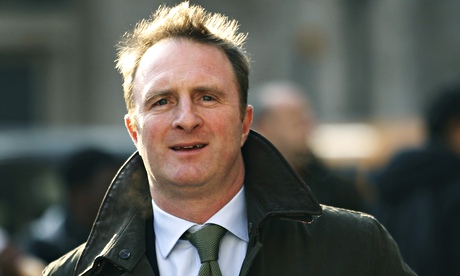
Tony Hall wins friends and influences critics when he begins to scrap BBC production quotas, letting independent production companies have all the opportunities they crave. That's one less chorus of licence fee disapproval come charter renewal time. But what about the BBC's non-friends in the press? Leave director general Hall aside and see what James Harding, head of news, had to say a few days ago.
"In just under a century, the BBC has transformed the world of news – and the world – with three revolutions: first in radio; then in television; and then online. Now mobile technology affords us the chance to lead a fourth revolution. In the age of the smartphone, we have entered the age of smart news, of handheld … news that is fully internet-enabled and responsive … in which everyone has a hand on the microphone, ie not just broadcast, transmitted or distributed, but shared, exchanged, investigated and explained as much by the audience as the author …. news that puts the world, with all this implies, in the palm of your hand."
Now, take a deep breath. The transformation preamble is, of course, pretty fair rubbish. The BBC didn't shape TV news. It learned new techniques from ITN. Pirate music stations jogged BBC local radio (and thus local news) into life. Sky started round-the-clock news in 1989 and the BBC followed suit eight years later. But concentrate on that fourth revolution.
BBC executives sometimes wonder why they get so much hostile press coverage. Harding was out and about in the north trying to build bridges to angry local editors only a couple of weeks ago. But look at the text of his future shock. BBC news is not "just" about broadcasting or providing a national agenda. Indeed, it may soon not be about conventional broadcasting at all; more the provision of interactive services and discussion that other news organisations – among them, naturally, newspapers seeking ways to grow and survive – are busy developing (via subscription or advertising). Yet with the BBC, supposedly, you will still pay your licence fee and get all this added activity thrown in. Facebook carries news clout: the BBC is using it in Thailand already. Lord Reith's heirs and successors want a slice of the Zuckerberg revolution, too.
No wonder even generally supportive newspapers are suspicious. This looks increasingly like state-sanctioned anti-competition without boundaries – vision creep and mission creep in desperate need of proper discussion and demarcation treaties on both sides. Whenever the corporation glances along Downing Street, it knows it needs friends. But friendship also demands something in return.

